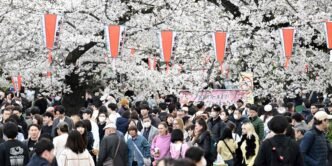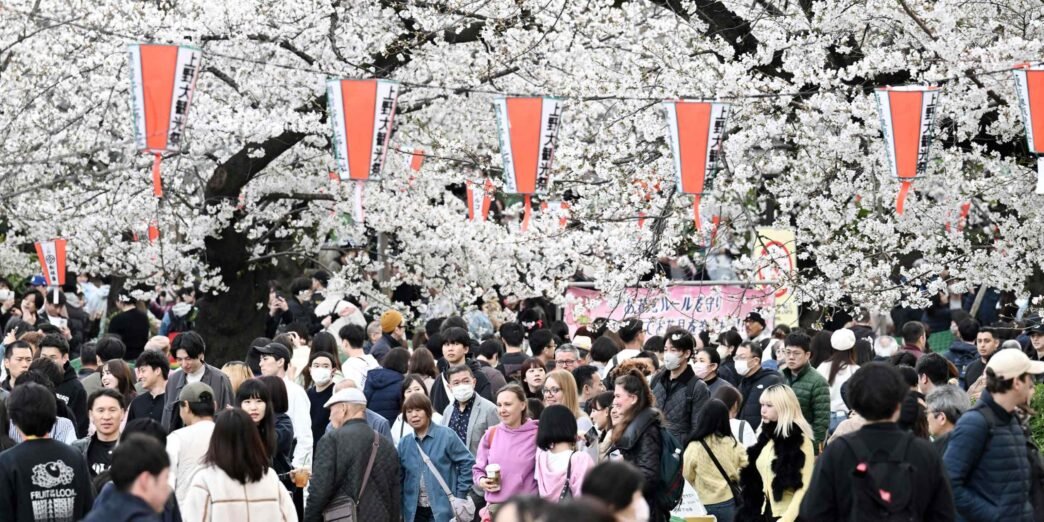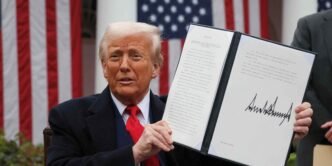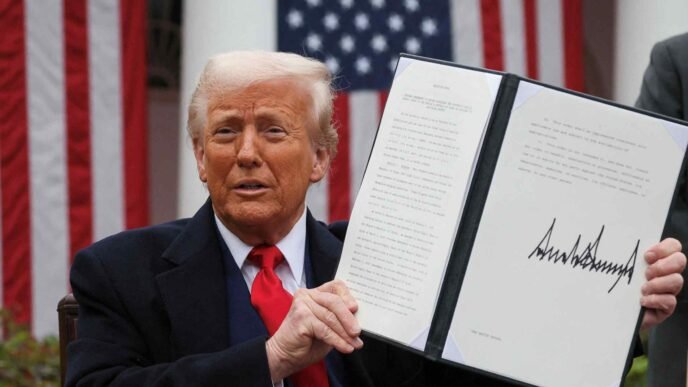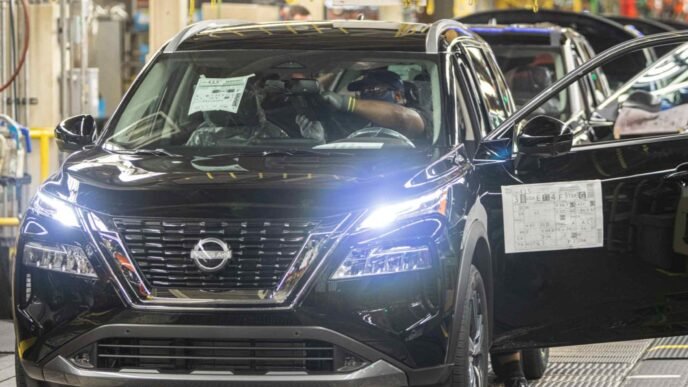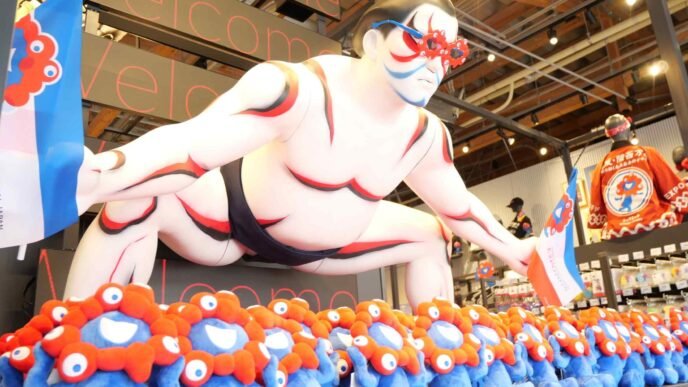Hello from Tokyo. It’s the first week of April, and the city is in full bloom with beautiful cherry blossoms. Although the small flowers have been drenched by cold rain over the past few days, the weather forecast says we can expect sunshine this weekend. I plan to enjoy hanami, or cherry blossom viewing, in a small park near my apartment to avoid the tourist crowds.
April is an important month in Japan, not only because the pink flowers signal the arrival of spring, but also because it marks the beginning of a new academic year and a new fiscal year for many companies. There have been changes in our newsroom as well, and I have been appointed as the editor-in-chief of Nikkei Asia.
We’ve been in full swing from the very beginning of the month, working hard to provide quality news to our readers. On the morning of April 1, our chief tech correspondent in Taipei delivered an international scoop about a potential merger between U.S. contract chipmaker GlobalFoundries and United Microelectronics Corp., Taiwan’s No. 2 chipmaker.
I am drafting this newsletter on the morning of Thursday, April 3, just hours after the administration of U.S. President Donald Trump announced large-scale reciprocal tariffs. At Nikkei Asia’s Tokyo headquarters, our team is closely monitoring Asian stock prices and currencies, scrambling to produce market-reaction pieces, and our reporters are tracking the responses of governments and companies across the region.
Nikkei Asia promises to serve as “the voice of the Asian century,” delivering carefully curated, insightful journalism to our readers 24/7 — from the impact of the Trump administration’s policies on Asia and deepening U.S.-China tensions to tech trends from Asia that are shaping the world. Our expert newsroom team is committed to analyzing global events from an Asian perspective to bring you exclusive news and feature articles. Please visit Nikkei Asia to enjoy our latest coverage.
My suggested reads
1. Thai Airways faced extreme turbulence in May 2020: It was forced to file for bankruptcy protection, trading in its shares was suspended and it entered rehabilitation. Five years on it is emerging leaner, stronger and ready to operate without the political interference that bedeviled it for years, according to its chief executive and rehabilitation administrator. They sat down for exclusive interviews with Nikkei Asia to explain how they see the future of the nation’s flag carrier.
2. The restructuring of Vietnam’s government launched by Communist Party General Secret To Lam is more far-reaching than Elon Musk’s DOGE drive in the U.S. But while few would question whether Vietnam would benefit from less bureaucracy and red tape, many are taking a wait-and-see attitude toward the campaign’s results.
3. China has become a world leader in smartphones and electric vehicles. Now it is looking to repeat that feat in humanoid robots, an area that combines sophisticated manufacturing, complex supply chains and advances in artificial intelligence — three of the country’s strengths.
4. South Korea on Monday lifted a ban on short-selling for all shares. The move may help internationalize the South Korean market by getting its shares included in global indexes, but analysts say that overheated stocks in industries such as defense and shipbuilding may suffer at the hands of short sellers.
5. No country embraces kitsch like Japan — and that’s not a bad thing, according to writer Stephen Mansfield. He says that the sniffy diction definitions of kitsch as tacky and lowbrow overlook how fun it can be. More than that, he argues, Japan has a knack for elevating it to the realm of cool.
Through the lens
This week’s top photo pick: People take shelter in a makeshift camp in front of a quake-damaged building in Mandalay, Myanmar’s second-largest city, on April 1.
A 7.7-magnitude earthquake, the epicenter of which was located northwest of Mandalay, struck on March 28, leaving more than 3,000 people dead and injuring thousands more in the war-ravaged country. (Photo by )
Check out more of our photo coverage here.
Wishing you a wonderful weekend!
Akito Tanaka
Sign up for the weekly Editor-in-chief’s picks newsletter here.
Follow us on LinkedIn and instagram.
